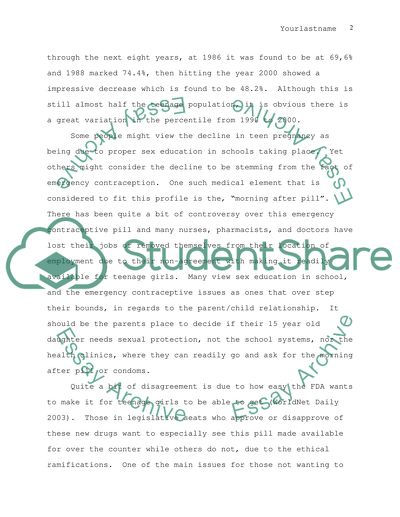Cite this document
(“Prescribing Minors with Emergency Contraception Essay”, n.d.)
Prescribing Minors with Emergency Contraception Essay. Retrieved from https://studentshare.org/health-sciences-medicine/1512934-prescribing-minors-with-emergency-contraception
Prescribing Minors with Emergency Contraception Essay. Retrieved from https://studentshare.org/health-sciences-medicine/1512934-prescribing-minors-with-emergency-contraception
(Prescribing Minors With Emergency Contraception Essay)
Prescribing Minors With Emergency Contraception Essay. https://studentshare.org/health-sciences-medicine/1512934-prescribing-minors-with-emergency-contraception.
Prescribing Minors With Emergency Contraception Essay. https://studentshare.org/health-sciences-medicine/1512934-prescribing-minors-with-emergency-contraception.
“Prescribing Minors With Emergency Contraception Essay”, n.d. https://studentshare.org/health-sciences-medicine/1512934-prescribing-minors-with-emergency-contraception.


